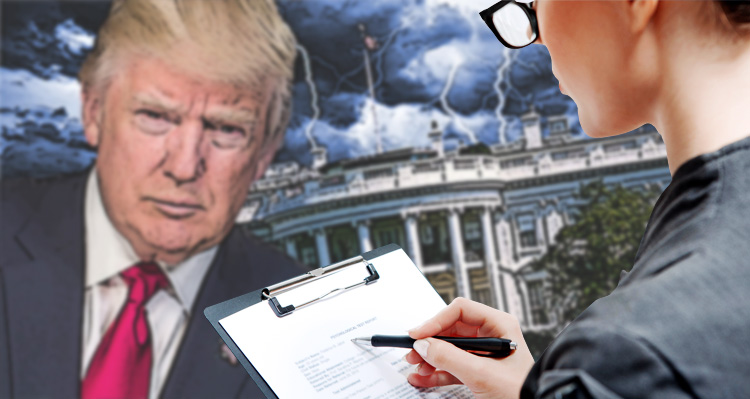
The lifting of the Goldwater Rule is more important today than ever “since Trump’s behavior is so different from anything we’ve seen before” from an occupant of the White House. ~ Dr. Prudence Gourguechon
America’s second oldest psychoanalytic group sent an email to members this month advising them that they can ignore a long-standing rule against publicly commenting on the mental health of public figures.
As Scientific American reports, “A leading psychiatry group has told its members they should not feel bound by a longstanding rule against commenting publicly on the mental state of public figures—even the president.”
That statement, sent by the American Psychoanalytic Association to its 3,500 members “represents the first significant crack in the profession’s decades-old united front aimed at preventing experts from discussing the psychiatric aspects of politicians’ behavior,” according to Scientific America who adds that “It will likely make many of its members feel more comfortable speaking openly about President Trump’s mental health.”
STAT, a leading national publication reporting on health, medical, and scientific matters, talked with Chicago psychiatrist and past president of the American Psychoanalytic Association Dr. Prudence Gourguechon, who told them that impetus for the email was “belief in the value of psychoanalytic knowledge in explaining human behavior,” adding “We don’t want to prohibit our members from using their knowledge responsibly.”
She went on to explain that that responsibility and lifting of the Goldwater Rule is more important today than ever “since Trump’s behavior is so different from anything we’ve seen before” from an occupant of the White House.
This is particularly significant because the Goldwater Rule has been prohibiting psychiatrists from offering such opinions since 1973,
As the American Psychiatric Association explains on their website:
Since 1973, the American Psychiatric Association and its members have abided by a principle commonly known as “the Goldwater Rule,” which prohibits psychiatrists from offering opinions on someone they have not personally evaluated. The rule is so named because of its association with an incident that took place during the 1964 presidential election. During that election, Fact magazine published a survey in which they queried some 12,356 psychiatrists on whether candidate Sen. Barry Goldwater, the GOP nominee, was psychologically fit to be president. A total of 2,417 of those queried responded, with 1,189 saying that Goldwater was unfit to assume the presidency.
Mental health professionals have been publicly questioning Trump’s emotional instability for over a year-and-a-half now.
In November 2015, Vanity Fair published an article questioning Trump’s mental health entitled: “Is Donald Trump Actually a Narcissist? Therapists Weigh In!“
In February of this year, a group of 37 psychiatrists, psychologists and other mental health professionals published a letter to the editors of The New York Times warning that “Trump’s speech and actions make him incapable of serving safely as president.”
Then in April, a group of psychiatrists attending a conference at Yale’s School of Medicine were warning that Trump has “dangerous mental illness” and are saying it is their “ethical responsibility” to warn the American public about his mental state.

You must be logged in to post a comment Login